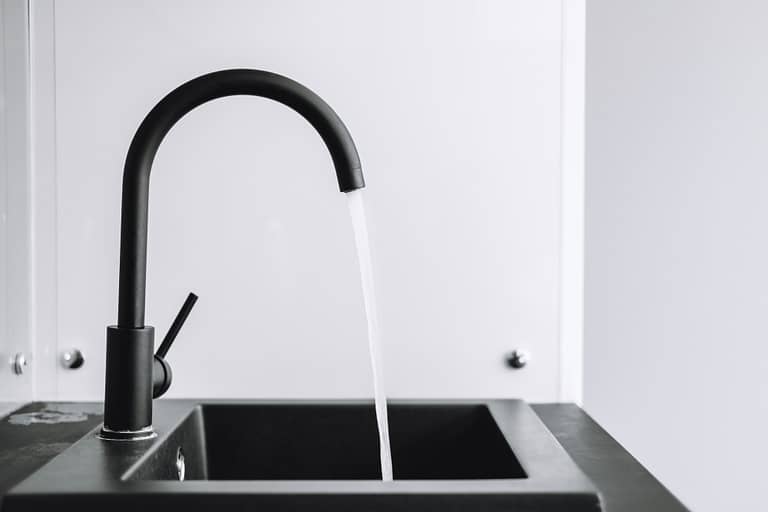Efficient Dishwashing: Saving Water in Dallas Kitchens
Hey Dallas kitchen enthusiasts!
If you want to save water and time while doing dishes, efficient dishwashing is key. By using WaterSense fixtures and running your dishwasher only when it's full, you can reduce water usage by up to 20%.
Making small changes to your routine adds up to significant water savings.
Let's explore some simple yet effective tips for efficient dishwashing and start making a difference in water conservation right in your own kitchen!
Key Takeaways
When you're in the kitchen, it's essential to focus on efficient dishwashing to save water. By using WaterSense fixtures, running full loads, and following proper techniques, you can help save hundreds of gallons of water each year. These small changes can make a big difference in preserving our precious water resources, much like turning off a leaky faucet.
Your efforts in keeping those dishes sparkling while saving water are truly commendable. By adopting these simple practices, you can contribute to water conservation and make a positive impact on the environment.
WaterSense Fixtures for Efficient Dishwashing
If you want to save water and reduce your utility bills, consider using WaterSense-labeled fixtures for your dishwasher. These efficient dishwashers can help conserve water and save you money. They're proven to be 20% more water efficient than comparable products, meeting water-saving goals with responsible, forward-thinking technology.
Dishwashers with the WaterSense label can save up to 200 gallons of water a month and reduce water consumption by up to 50%. By using around 3-4 gallons of water per cycle, they're significantly more water-efficient than older models, which can use up to 10 gallons.
Upgrading to an Energy Star-certified, water-saving dishwasher not only conserves water but also saves up to $40 per year on energy bills. Remember to run full loads to maximize water and energy efficiency.
Water Filtration at Home
If you want better quality water in your Dallas kitchen for drinking, cooking, and washing up, think about putting in a whole-home water filter.
Filtered water not only tastes better and is more environmentally friendly than bottled water, but it also helps your appliances, like the dishwasher, work more efficiently and last longer.
For instance, using filtered water in the dishwasher can result in cleaner dishes and less water used during each wash. This, in turn, saves you money and reduces your environmental impact.
Plus, remember that producing a single 16 oz. water bottle can take 1.5 gallons of water. By using filtered water at home, you can help conserve water and reduce waste.
Now, let's talk about another important aspect of using your dishwasher efficiently: always run it when it's full to save water and energy.
Full Load Dishwasher Usage
When you run full loads in your dishwasher, you can save up to 300 gallons of water each year. This not only helps conserve water but also reduces energy bills, saving you around $40 annually.
Optimal Dishwasher Capacity
When using your dishwasher, it's important to run it at full capacity to save water and energy. This not only helps in conserving resources but also reduces utility costs. Running full loads ensures efficient use of the dishwasher and offers several benefits:
- Water Savings: Running a full load can save up to 300 gallons of water annually.
- Energy Efficiency: Running full loads saves $40 on energy bills per year and over 400 gallons of water a month.
- Comparative Savings: Using a dishwasher instead of hand-washing dishes can save up to 5,000 gallons of water per year.
- Appliance Efficiency: Dishwashers with a full load are more energy-efficient than multiple smaller loads.
Water Conservation Benefits
Using a full load in an energy-efficient dishwasher can help save up to 300 gallons of water each year. Energy-efficient dishwashers typically use around 4 gallons per cycle, compared to the average of 6 or more.
By using a dishwasher instead of washing dishes by hand, you can save up to 5,000 gallons of water annually. Using the dishwasher less frequently not only saves water, but also conserves energy and time.
Properly loading the dishwasher is crucial for maximizing its efficiency and water usage. By efficiently using the dishwasher and ensuring it's always at full capacity, you can significantly reduce water and energy consumption in your kitchen.
Time and Energy-Saving
Using a full load in your dishwasher is a smart way to save time and energy. It helps to reduce energy consumption and water usage, ultimately saving you money on your utility bills. Here's why running a full load in your dishwasher is so beneficial:
- Energy Efficiency: When you run full loads, your dishwasher uses energy more efficiently, which means it needs less energy for each cycle.
- Water Conservation: Running full loads reduces the number of times you use water, leading to significant savings on your water bill.
- Hot Water Optimization: Using a full load allows you to optimize the use of hot water, as the same amount of water and energy is used whether the dishwasher is full or not.
- Time-Saving: Fewer dishwasher cycles save you time and effort, freeing you up to do other things.
Defrosting Without Water Baths
When defrosting food without water baths, you can use waterless methods like the refrigerator, microwave, or cold water.
These thawing techniques help save water and support water conservation efforts.
Waterless Defrosting Methods
When it comes to your kitchen, it's essential to find efficient ways to defrost frozen foods while conserving water and energy. Waterless defrosting methods provide a solution to this challenge. By using these methods, you not only save water but also contribute to energy conservation and efficient dishwashing.
Here are some effective waterless defrosting methods that you can adopt:
- Refrigerator Thawing: Plan in advance and thaw your frozen items in the refrigerator to conserve water and maintain the quality of the food.
- Microwave Defrosting: Utilize the defrost setting on your microwave to quickly and efficiently thaw frozen foods without the need for water.
- Cold Water Soak: Although not entirely waterless, using a sealed bag and cold water can expedite the defrosting process without excessive water usage.
- Meal Planning: Planning your meals in advance reduces the need for last-minute defrosting, minimizing water usage and energy consumption.
Eco-Friendly Thawing Techniques
When defrosting food, it's important to consider eco-friendly techniques that promote water and energy conservation. Thawing food in the refrigerator is a more water-efficient option than using water baths. Planning meals in advance allows for less wasteful methods of defrosting, reducing the need for water baths.
Additionally, using the microwave or cold water method can defrost food effectively without the need for water baths altogether. These practices help conserve water and energy, making them eco-friendly thawing techniques.
Minimizing Water Usage
To reduce water usage and embrace eco-friendly thawing methods in your kitchen, consider using the refrigerator or microwave for efficient defrosting. These methods help save water and energy while effectively thawing your food.
Here are some tips to help you minimize water usage in your kitchen:
- Plan your meals ahead to reduce the need for last-minute thawing, thus minimizing the use of water baths.
- Utilize the refrigerator to safely thaw food without water baths, conserving water and promoting eco-friendly practices.
- Use the microwave for quick and efficient defrosting, eliminating the need for water baths and further saving water.
- Opt for cold water methods when necessary, ensuring minimal water usage while defrosting food items.
Efficient Dish Scraping
Efficient Dish Scraping
Before washing dishes, it's important to scrape them thoroughly to prevent clogging the disposal and save water. By disposing of solid scraps in the trash or compost pile, you can conserve a significant amount of water when washing dishes by hand.
The EPA WaterSense program highlights that efficient dish scraping can save up to 200 gallons of water per month.
When using the dishwasher, remember to scrape off any large food particles to prevent them from clogging the machine's filter, which improves its overall efficiency. This simple step not only saves water but also reduces the energy required for the dishwasher to clean the dishes effectively.
Optimal Water Temperature
When washing dishes in Dallas, it's important to use the right water temperature for effective cleaning. Here are some tips to help you optimize your dishwashing process:
- Water Temperature Range: Set your dishwasher to a water temperature between 120-140 degrees Fahrenheit for the best cleaning results.
- Sanitize Option: If your dishwasher has a 'sanitize' option, use it to heat water to 155 degrees Fahrenheit. This not only kills bacteria but also improves cleaning.
- Pre-Rinsing Benefits: Pre-rinse your dishes before loading them into the dishwasher. This reduces the need for higher water temperatures during the cleaning cycle, which helps save water and energy.
- Tap Water Optimization: Fill the dishwasher with warm water from the tap. This helps the appliance reach the desired temperature more quickly, making the cleaning process more efficient.
Proper Dishwasher Loading Techniques
When you load your dishwasher, place larger items on the sides and in the back to avoid blocking water flow. This maximizes efficiency and water usage, helping you save up to 300 gallons of water each year.
Proper dishwasher loading techniques not only save water but also lower energy bills. Considering water flow when loading the dishwasher optimizes its efficiency. Positioning the top or dirtier side of the dish towards the center ensures direct detergent contact, leading to better cleaning results.
Additionally, running the dishwasher less frequently saves water, energy, and time. These proper loading techniques can significantly reduce water usage and contribute to efficient dishwashing while minimizing the impact on your energy bills.
Frequently Asked Questions
What Is the Most Water Efficient Way to Wash Dishes?
When washing dishes, you can save water by using a dishwasher that's designed to be water-efficient. Make sure to wait until the dishwasher is full before running it. When hand washing dishes, use warm water sparingly. These habits help conserve resources and support sustainable living by reducing water usage. For example, using a water-saving dishwasher can significantly reduce the amount of water used for washing dishes, which is beneficial for the environment.
Does Cascade Platinum Really Save Water?
Yes, Cascade Platinum does indeed save water. This dishwasher detergent dispels myths about water usage and actually helps in reducing water consumption. By using Cascade Platinum, you can contribute to lessening the environmental impact while still getting powerful cleaning results. Additionally, it's a cost-effective option, making it a practical choice for those looking to save both water and money. So, why not make the switch and start saving with Cascade Platinum?
Does Running Your Dishwasher Every Night Save Water?
Running your dishwasher every night can save water compared to hand washing. Energy-efficient dishwashers use less water per cycle, which contributes to daily water usage and environmental impact. It's an efficient and environmentally friendly daily habit to adopt. By using a dishwasher, you can save time and water, contributing to both your convenience and environmental efforts.
How Much Water Can You Save by Using a Dishwasher?
Using a dishwasher can save a significant amount of water. In fact, it can save up to 5,000 gallons of water every year. Energy-efficient models are even better, reducing water consumption by 50%. These models are equipped with sensors that adjust water usage based on how dirty the dishes are. Additionally, modern dishwashers have efficient spray arms and shorter cycle times, which also contributes to water savings. This makes using a dishwasher an environmentally friendly choice that can make a real impact on water conservation.
Conclusion
When you're in the kitchen, it's important to focus on efficient dishwashing to save water. Using WaterSense fixtures, running full loads, and following proper techniques can help save hundreds of gallons of water each year.
Making these small changes is like turning off a leaky faucet, and it can make a big difference in preserving our precious water resources.
Your efforts in keeping those dishes sparkling while saving water are truly commendable!







